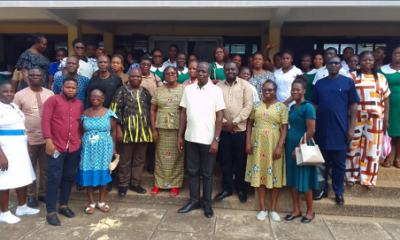News
Rich African culture, tradition on display at Asantehemaa funeral rites
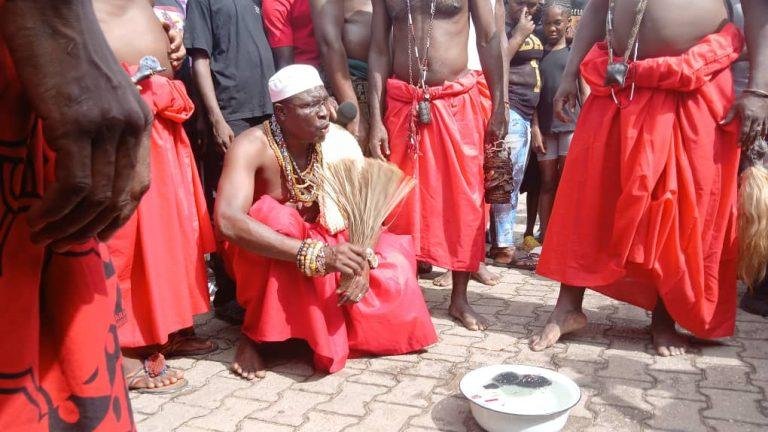
The rain began at precisely 4:25 p.m. on Tuesday, September 16, 2025, the second day of the funeral rites of the late Asantehemaa, Nana Konadu Yiadom III.
In most places, such a downpour might have sent mourners scurrying for shelter, umbrellas snapping open like protective wings. But this was Manhyia Palace in Kumasi, and this was no ordinary farewell.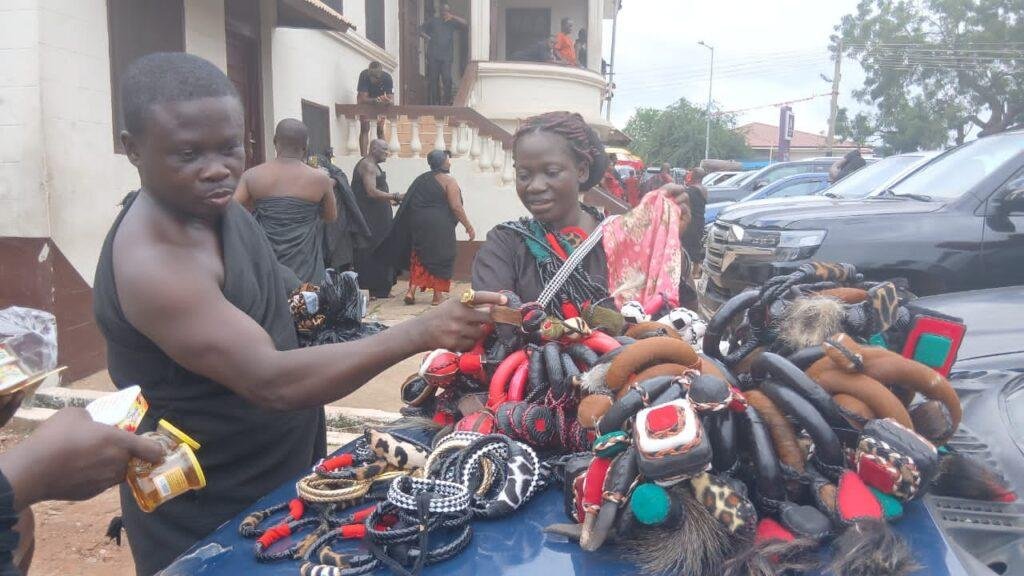
As thousands stood steadfast in the rain, their traditional black ‘Kuntunkuri’ garments darkening with moisture, something magical was about to unfold.
The Asantehene, Otumfuo Osei Tutu II, seated regally in his palanquin and surrounded by loyal chiefs, was being carried across the funeral grounds to greet his people who had come to honour his late sister, Nana Konadu Yiadom III.
Then came the moment. The bearers stopped at a point. The drums spoke their ancient language. And in a gesture that perfectly captured the soul of a kingdom, the king of the Asante people appeared ‘possessed’ in the palanquin and danced—gracefully, purposefully, powerfully—in the rain.

The crowd erupted. Cheers thundered across the palace grounds, mixing with the rhythm of traditional drums and the percussion of raindrops on umbrellas and rooftops.
Nana Konadu Yiadom III was no ordinary royal. Born in 1927 at the sacred Benyaade Shrine at Merdan, Kwadaso, Nana Ama Konadu was the daughter of Nana Afia Kobi Serwaa Ampem II, Asantehemaa from 1977 to 2016, and Opanin Kofi Fofie, a respected carpenter from Besease near Atimatim.
She lived for 98 remarkable years, serving as the 14th Asantehemaa—the Queenmother who stood not behind, but beside the king, wielding spiritual authority and political wisdom in equal measure. She ascended the stool on February 6, 2016.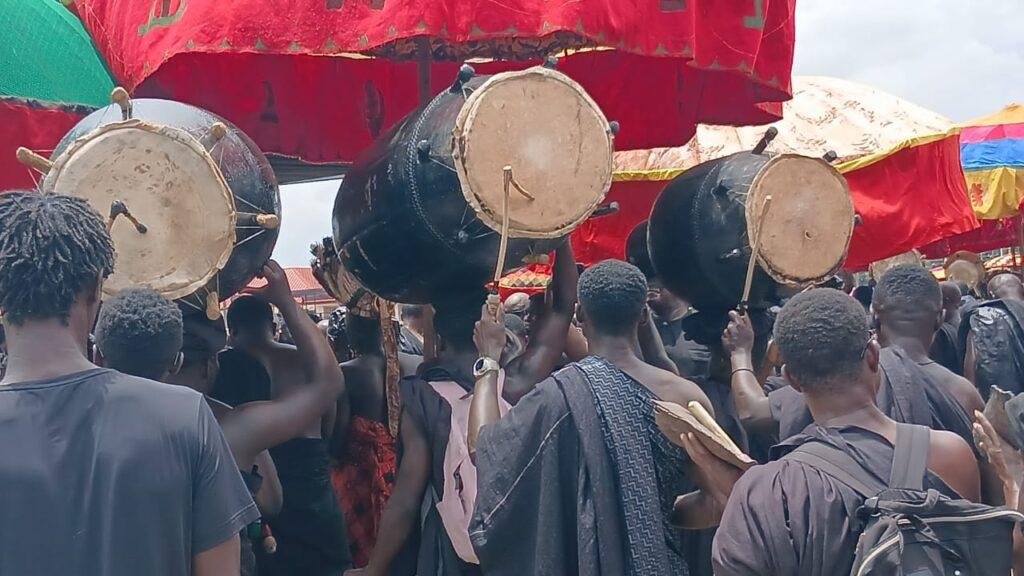
On August 12, 2025, the Asantehene shared that the Queenmother had been remarkably active on the morning of her final day, attending to her duties with characteristic vigor before her sudden departure in the afternoon.
Her passing came just a day after the nation was plunged into mourning following a tragic military helicopter crash that claimed the lives of eight high-ranking government officials.
Her eight-year reign was marked by what those who knew her described as ‘quiet strength’ and ‘institutional wisdom.’
As elder sister to the Asantehene and guardian of the Oyoko lineage, she was far more than a ceremonial figure. The Asantehemaa nominates the next king, rules on disputes, and commands her own palace.
She is the keeper of matrilineal succession, the voice of ancestral guidance, and in times of crisis, even a war leader—as history remembers from Yaa Asantewaa’s legendary stand against British colonialism in 1900.
The late queenmother’s passing marked the end of a lineage stretching back to 1695, from Nana Nyarko Kusiamoa to the present day.
Some reigned for decades, like Nana Konadu Yiadom I (41 years) and Nana Afia Kobi Serwaa Ampem II (39 years), while others, like Nana Yaa Dufie and Nana Ama Serwaa I, held the stool for shorter but no less impactful tenures.
Each Queenmother brought her own gifts—some as fierce protectors of tradition, others as reformers and mediators. Together, they form what one historian called “a tapestry of Ashanti womanhood that stretches across centuries.”
Business
But, even in mourning, life finds a way to celebrate culture. Across the Palace, sales of mourning cloths, (Kuntunkuri), amulets, ‘Ahenema’—the traditional royal slippers also known as ‘Kyawkyaw’—have skyrocketed during the funeral rites.
‘Kyawkyaw’ are not mere footwear; they are cultural artefacts dating back to the 18th century, each pair telling a story through its symbols and colours.
The black funeral slippers bear names that sound like poetry: ‘Anibere a nso gya,’ ‘sika wo ataban.’ Each design reflects not just fashion, but identity, status, and occasion.
During the funeral, chiefs and queenmothers could be seen carefully polishing their Ahenema, preparing to honour their departed matriarch in proper traditional style.
Traders told local media that while sales were always steady, the funeral has brought unprecedented demand. “Everyone wants to pay their respects properly,” explained one vendor.
The four-day funeral, running from September 14-18, has transformed Kumasi into a cultural epicentre drawing dignitaries from across Ghana and beyond.
To ensure dignified and orderly participation, the Palace designated specific days for various institutions and groups to pay their respects.
Monday, September 15, was reserved for churches and clergy, political parties, educational institutions, non-governmental organisations, telecommunication firms, corporate bodies, recognised associations, and the general public.
Tuesday, September 16, would welcome the Judiciary and Ghana Bar Association, security services, including the Ghana Armed Forces, Police, Fire Service, Prisons Service, Immigration, and Customs, alongside State-Owned Enterprises, public officers, financial institutions, and the general public.
Wednesday, September 17, was designated for Ministers of State, the Diplomatic Corps, Members of Parliament, Metropolitan, Municipal and District Chief Executives, non-Asante chiefs, mining companies, and the general public.
Spiritualists and traditional groups from across Africa set the tone for day three of the funeral rites of the late Asantehemaa, with striking rituals and cultural displays.
Delegations from Benin and Togo amazed mourners with sacred performances featuring revered deities, offering a rare glimpse into their deep-rooted customs.
The people of Aflao also held the crowd spellbound with a dramatic ritual that saw flames rising from water in a vessel — a symbolic act that stirred awe and excitement among onlookers.
A mourner who witnessed, told The Spectator: “This is not something you see every day. It is a reminder of how African traditions, though varied, can come together under the influence of the Asante Kingdom.”
Speaking to The Spectator a cultural commentator at the event observed, “The Asantehemaa’s funeral is more than mourning. It has become a showcase of Africa’s cultural richness, demonstrating the power of tradition to unify people.”
Thursday, September 18, had the President, John Dramani Mahama, former Presidents and Vice Presidents, the Diplomatic Corps, and the general public.
Other Paramount Chiefs from beyond Ashanti such as Oguaamanhene Osaberima Kwesi Atta II, Paramount Chief of Sefwi-Anhwiaso, Ogyeahoho Yaw Gyebi III, The Ga Mantse, Paramount Chief of Aflao, Torgbi Amenya Fiti V, among others, were all not left out to mourn with the Asantehene.
As the sacred process of selecting the 15th Asantehemaa begins, with the Oyoko clan deliberating under ancestral guidance, one image will remain: their king, dancing in the rain, showing that true majesty is not about staying dry—it is about being present, authentic, and connected to your people, regardless of the weather.
From Kingsley E. Hope
News
Beyond NPP, NDC: 2 ‘Gen Z’ MPs unite to prioritise purpose over politics

In a rare display of cross-party collaboration, two Members of Parliament from opposing political traditions have set aside partisan differences to champion a shared cause—empowering women and transforming communities.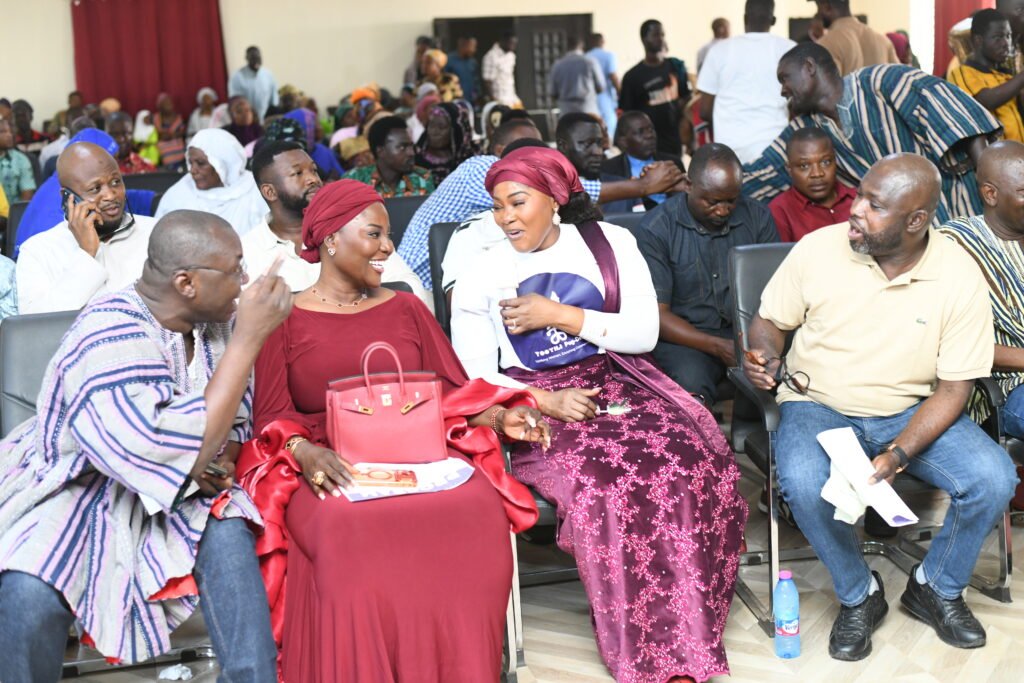
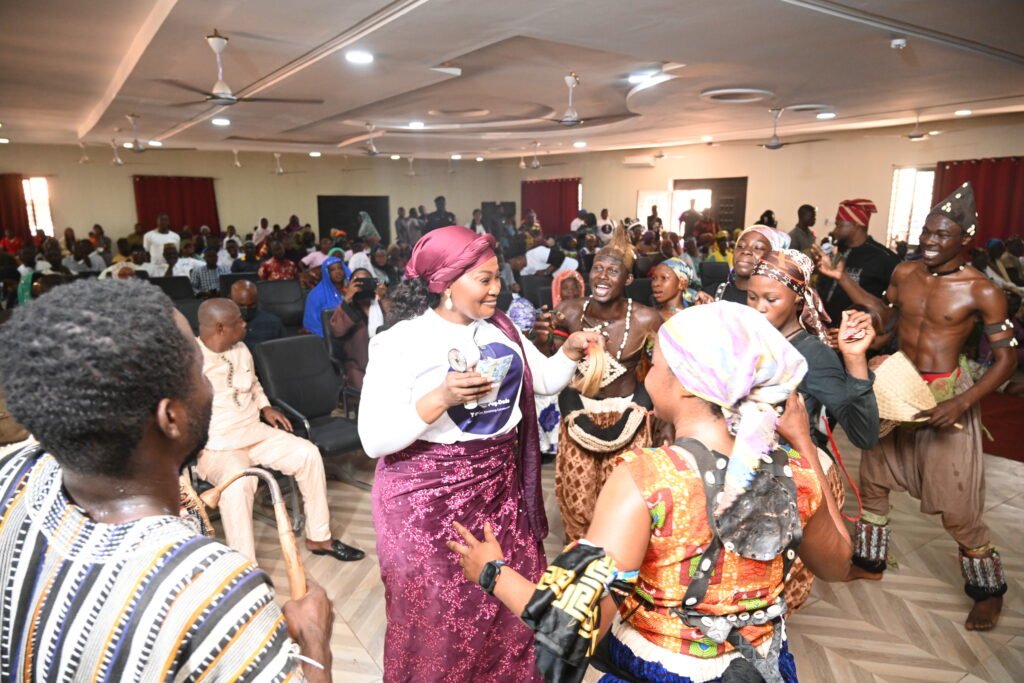
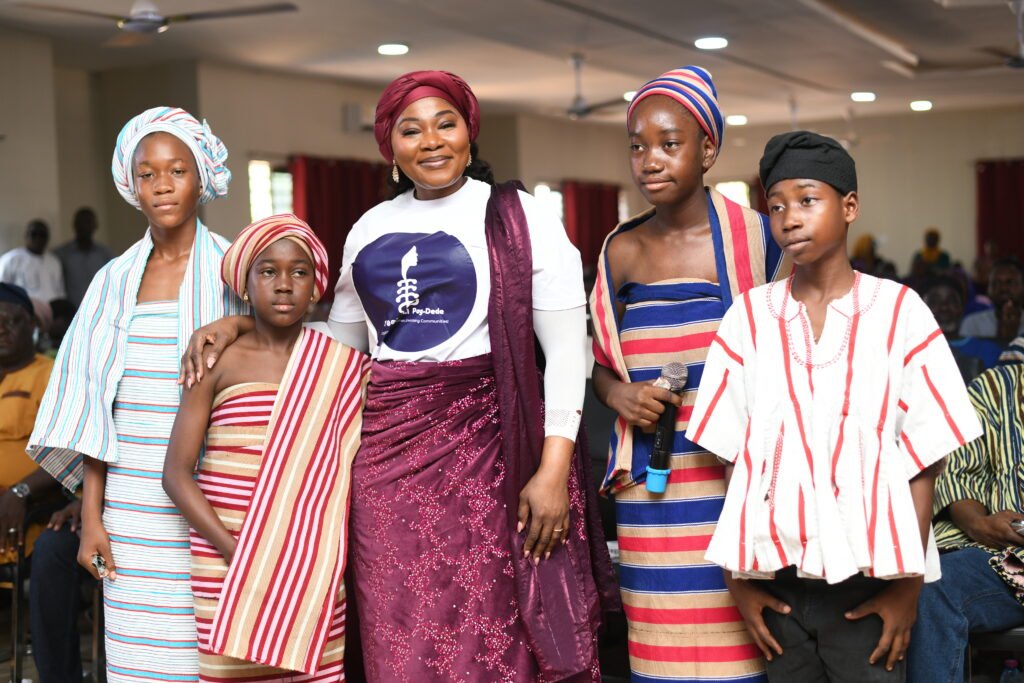
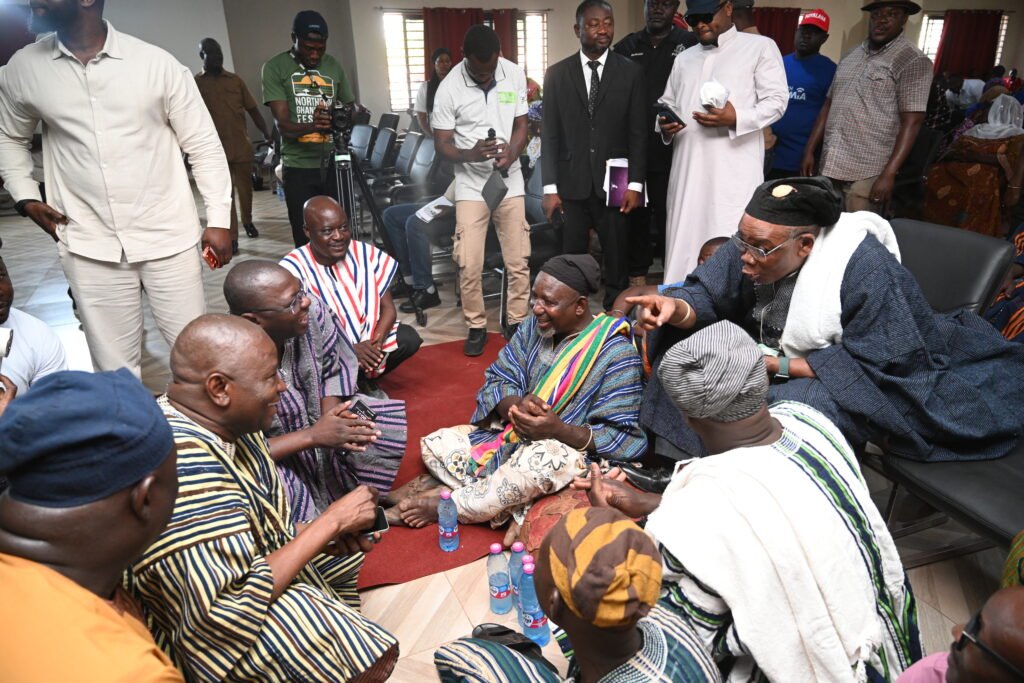
On February 14 (Valentine’s Day), the Savelugu Community Centre hosted the official launch of the Yooyili Pag-Dede Foundation, an initiative designed to expand economic opportunities for women, strengthen early childhood education, nurture youth creativity, and improve access to clean water.
Leading the effort was Abdul Aziz Fatahiya, Member of Parliament for Savelugu (New Patriotic Party), who was joined in solidarity by Dorcas Affo-Toffey, Member of Parliament for Jomoro and Deputy Minister for Transport.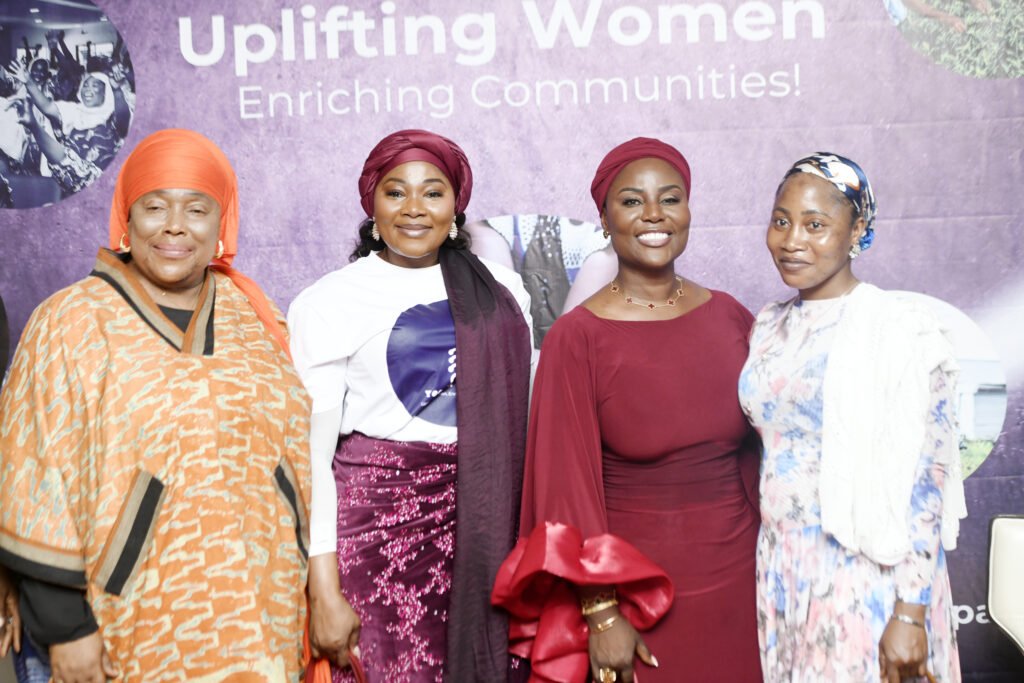
The partnership has drawn attention not only for its development focus but also for its symbolism—a bipartisan alliance centered on people-first leadership.
In her address, Fatahiya emphasised that while the people of Savelugu were hardworking and resilient, many women and young people lack structured opportunities to maximise their potential.
“Our women are determined, but determination alone is not enough. We must build systems that give them access to resources, skills, and markets,” she stated.
She explained that the Yooyili Pag-Dede Foundation will operate through five core programmes, including potable drinking water.
The foundation also seeks to promote financial independence for women and ensure the inclusion of persons with disabilities in community development efforts.
Key initiatives include:
- She Grows: supporting women farmers with training and modern agricultural initiatives.
- Style of Dagbon: a hub for women’s fashion entrepreneurship and creative enterprise.
- Story Weavers of Yooyili: empowering children aged six to 15 as storytellers, artists, and cultural ambassadors.
- Dagbon Karizung: strengthening pre-school education across Dagbon communities.
- Clean Water Project: expanding access to safe and potable water.
Delivering the keynote address, Mohammed Amin Adam, the Member of Parliament for Karaga and former Finance Minister, underscored the central role of education in breaking the cycle of poverty.
He urged parents to prioritise investment in their children’s future and commended Madam Fatahiya for the initiative, supporting it with a donation of GH¢20,000.
Madam Affo-Toffey praised the project, describing it as a commendable initiative worthy of emulation, particularly by female MPs across the country. With an initial GH¢20,000 donation, she noted that the initiative had inspired her to explore similar development models within her own constituency.
Prior to launching the foundation, Madam Fatahiya organised a free breast cancer and chronic disease screening programme that benefited more than 3,000 women across Savelugu.
She described the foundation as an extension of that commitment, aimed at addressing systemic barriers to women’s advancement through practical and sustainable solutions.
In a lighthearted moment that drew laughter and applause, Madam Fatahiya referred to herself and her colleague as “the Gen Z MPs.”
“WE may belong to different political parties, but today we are the Gen Z MPs that collaborate, innovate, and we don’t wait,” she remarked.
She added that a new generation of women political leaders are willing to bridge divides in pursuit of measurable impact.
Also present at the launch was Habib Iddrisu, Member of Parliament for Tolon, who noted that the initiative signals a shift toward issue-based governance to one that prioritises development outcomes.
The event attracted several dignitaries from both political parties, including the Northern Regional Chairman of the NPP, as well as former MCEs and DCEs.
In an era frequently characterised by political polarisation, the bipartisan cooperation witnessed in Savelugu offers a compelling alternative narrative, when leaders unite around shared values and community needs, transformation becomes possible.
From: Geoffrey Buta, Savelugu
Join our WhatsApp Channel now!
https://whatsapp.com/channel/0029VbBElzjInlqHhl1aTU27

News
Teenage pregnancy cases rise in Akatsi South, exceeds national target
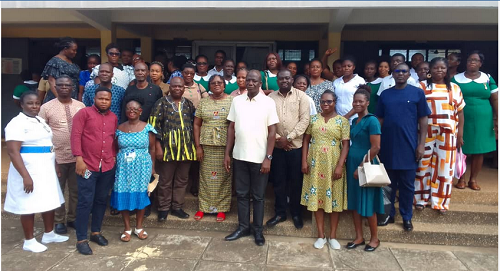
THE Akatsi South Municipality recorded 314 teenage pregnancies in 2025, exceeding the national target despite intensified efforts by health officials to curb the situation.
“Sad as it may be, six girls aged 10–14 years were pregnant, and 269 teenagers delivered, of which five were between 10–14 years, all making up 12.1 per cent against the national target of reducing below 11.5 per cent,” Miss Justine Sefakor Alornyo, Municipal Director of Health Services, disclosed during the 2025 health performance review at the Akatsi South Municipal Assembly Hall.
Under Antenatal Care (ANC), 2,594 pregnant women were registered in 2025, representing 65.9 per cent coverage, up from 2,278 in 2024 with 58.4 per cent coverage.
The Municipality recorded 2,071 supervised deliveries in 2025, a slight increase from 1,997 in 2024. All 2,071 newborns received BCG, Penta, and Measles-Rubella vaccines.
Miss Alornyo attributed the gains to continuous education and advocacy across the Municipality.
On HIV, 151 cases were identified—108 females and 43 males. All are on treatment, including 15 pregnant women who tested positive. Eighteen exposed babies have been placed on prophylaxis.
She added that 60 tuberculosis cases were managed, while investigations into six suspected measles cases, two yellow fever cases, and one Acute Flaccid Paralysis (AFP) case all tested negative.
Highlighting achievements, Miss Alornyo thanked stakeholders, especially the Municipal Assembly, for supporting service delivery. In 2025, the construction of CHPS compounds at Zuta, Ahlepedo, and Asafotsi, as well as the renovation of the Wute Health Centre, is ongoing.
Midwives were posted to Wuxor, Gui, Dzogadze, Akuave, and Livega CHPS facilities, while Dzogadze and Gui CHPS were officially handed over for service delivery.
The annual review assessed progress, achievements, gaps, and innovative strategies to address health challenges.
Akatsi South Municipality is served by 40 health facilities: two hospitals (one private and one municipal), six health centres, 27 CHPS compounds, one CHAG facility, and four clinics.
Infrastructure deficits and transportation challenges remain key concerns.
—GNA
Join our WhatsApp Channel now!
https://whatsapp.com/channel/0029VbBElzjInlqHhl1aTU27




